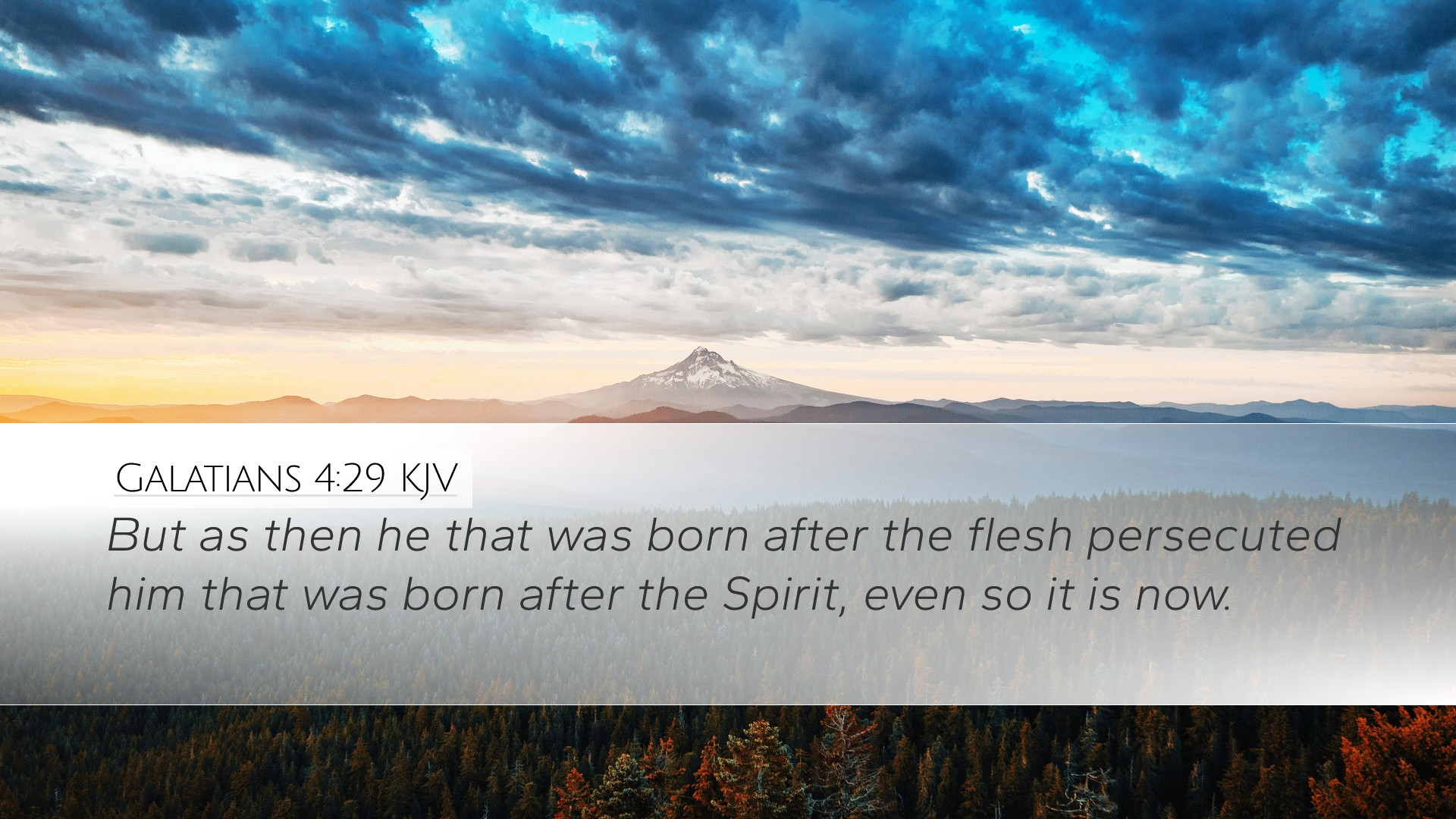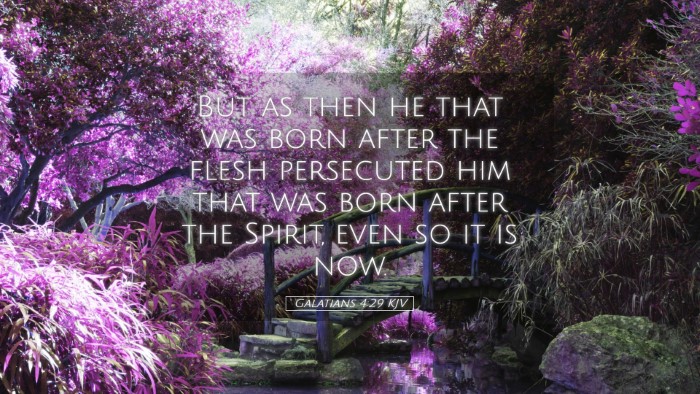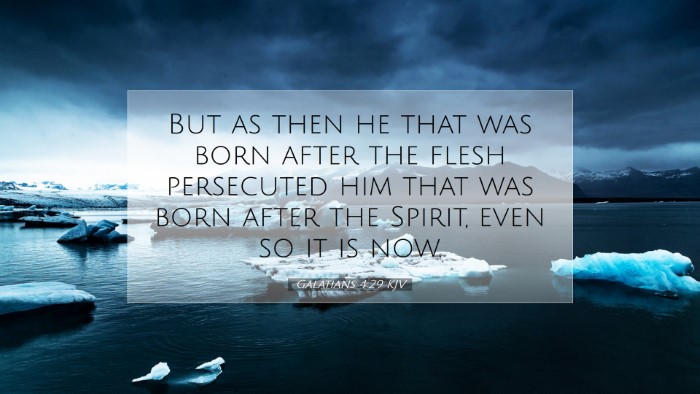Commentary on Galatians 4:29
Galatians 4:29 states:
"But as then he that was born after the flesh persecuted him that was born after the Spirit, even so it is now."
This verse encapsulates the ongoing conflict between the two different births discussed in previous verses, namely, that of the flesh and that of the Spirit. Both the historical and contemporary implications of this verse unfold in profound ways for believers.
Context and Analysis
The Apostle Paul highlights the contrasting realities of those born of the flesh, represented by Ishmael, and those born of the Spirit, symbolized by Isaac. This dichotomy serves as a thematic foundation in Paul's argument against reliance on the law for salvation and the superiority of spiritual rebirth through faith in Christ.
Insights from Matthew Henry
Matthew Henry reflects on the nature of conflict between fleshly and spiritual pursuits. He points out:
- The significance of Ishmael's persecution of Isaac highlights the antagonism that arises between two different ways of living.
- This persecution is not merely historical but is representative of the ongoing struggle that Christians face against worldly influences.
- Henry emphasizes that the disdain of the fleshly mind towards spiritual truths continues in the lives of believers today.
Henry argues that the-source of conflict often lies in a misunderstanding of divine promise, where reliance on human effort gives rise to discord between believers.
Insights from Albert Barnes
Albert Barnes offers an analytical perspective, noting:
- The phrase "born after the flesh" refers to those who pursue natural, earthly goals opposed to divine aspirations.
- Barnes elucidates that such individuals are often antagonistic towards those who have truly embraced the gospel and the life of the Spirit.
- He also draws parallels between the persecution faced by early Christians and the challenges faced in modern contexts, cautioning that believers must be prepared for adversity.
Barnes calls believers to recognize the source of their conflict as fundamentally spiritual rather than merely social or political.
Insights from Adam Clarke
Adam Clarke provides a nuanced commentary on the implications of Paul's words:
- Clarke argues that the literal historical context of Ishmael and Isaac serves as a metaphor for spiritual life today.
- He examines the implications of “persecution” in a broader sense, suggesting that this conflict manifests not only in external persecution but also in internal struggles within the church.
- Clarke emphasizes the necessity for believers to remain grounded in the Spirit, as the source of strength and truth, despite secular opposition or societal norms.
Clarke encourages believers to seek harmony within the community of faith, striving for unity amidst diversity of thought and experience.
Theological Implications
This verse reveals key theological principles regarding the nature of salvation and the believer's identity:
- The Dual Nature of Humanity: The distinction between living by the flesh versus the Spirit is central to Christian theology, highlighting the necessity of rebirth.
- Conflict as Identity: Believers must recognize that persecution is an inherent part of their spiritual identity. Suffering in Christ is a hallmark of true faith.
- The Triumph of the Spirit: Despite the persecution faced by the righteous, the end goal is the ultimate victory of those who belong to Christ.
Practical Applications
For pastors, students, theologians, and scholars, Galatians 4:29 provides multiple layers of application:
- Preaching and Teaching: This verse can guide sermons on the nature of suffering and the triumph of the Spirit over the flesh, offering congregants a biblical perspective on conflict.
- Encouragement in Adversity: Believers can draw strength from this verse to remain steadfast during trials, reminding them that persecution is a part of the Christian journey.
- Community Relationships: This passage invites discussions on how the church can cultivate a supportive environment where the Spirit flourishes, even amid conflicting views.
Conclusion
Galatians 4:29 serves as a reminder of the ongoing struggle between the flesh and the Spirit. It invites believers to embrace their identity in Christ and to persevere in faith despite opposition.
By examining the insights of Matthew Henry, Albert Barnes, and Adam Clarke, we can gain a holistic understanding of this verse and its implications for contemporary Christian life. It ultimately calls the church to a profound engagement with the Spirit, yielding fruit in a world that often resists divine truth.


